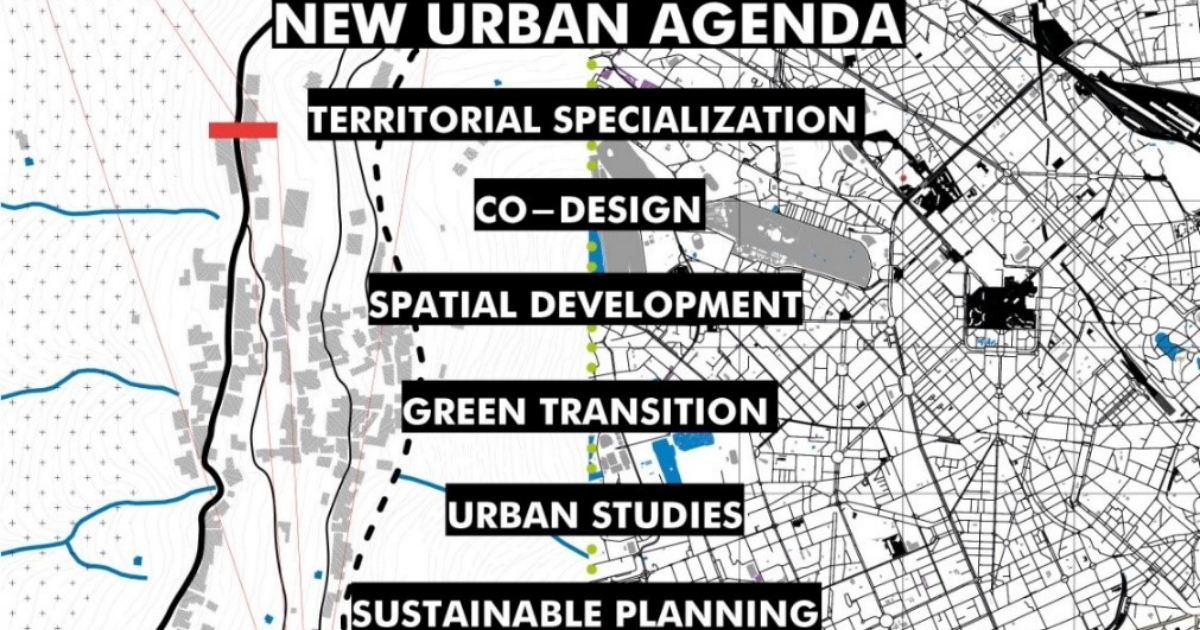New Urban Agenda and New Urban Studies: A Sustainable Planning Toolkit
A special issue of Sustainability (ISSN 2071-1050).
Deadline for manuscript submissions: closed (30 April 2023) | Viewed by 4132

Special Issue Editor
Interests: sustainable urban and regional planning; ecosystem services; advanced models and spatial techniques for territorial assessment
Special Issues, Collections and Topics in MDPI journals
Special Issue Information
Dear Colleagues,
The demand for effective sustainable development is becoming increasingly pressive for cities, as it is considered to be the primary engine of green transition.
While it is generally agreed among scholars, practitioners and decision makers that the general objective of making cities smart, green, inclusive and resilient should be pursued, during implementation, technical, economic and social issues and local conflicts demonstrate the fragility of the complex process of scaling global targets in local actions.
The UN New Urban Agenda draws out a “new” urban development roadmap where the citizen becomes (once again) the key actor.
However, there is not a predefined formula to ensure the success of an urban sustainable development strategy. Robust methodologies include the pervasive use of technologies in assessing urban flows, data-driven urban models exploiting city-sensor information and the structure of an updated toolkit to plan the sustainable future of cities. Local features are relevant as pillars to successfully structure an urban and territorial system toward more sustainable, inclusive and livable conditions. Case studies, success stories and applied research allow us to identify benchmark practices, general recommendations and transferable metrics for better strategic designs for urban futures. Additionally, the metrics used to investigate metropolitan areas cannot be the same as those adopted in inland and remote areas and, therefore, a predetermined abacus of design solutions developed for major urban areas has to be scaled and adapted carefully in order to achieve results in small villages. These differences are evident in the most reliable applied research but do not have a normative enough basis to balance the differences between the main urban poles and rural settlements, assuming that citizens hold the same rights in sustainable development.
Therefore, a toolkit to tackle up-to-date planning challenges in applying NUA must be derived from outstanding practices. The Special Issue invites the submission of the latest high-quality theoretical and empirical research articles to uncover the latest developments in applied sustainability at the metropolitan and small-town scales.
Relevant topics:
- Applied New Urban Agenda;
- Policy making and sustainable government of green transition for the growing metropolis and/or the declining villages in rural areas;
- Planning paradigms for sustainable cities;
- Governance and management of sustainable cities;
- Green technologies for sustainable cities;
- Energy poverty vs. urban circularity;
- Sustainable mobility: from 15-minute cities to walkable cities;
- Urban regeneration;
- Nature-based solutions, urban green infrastructures and ecosystem services;
- Measuring territorial specialization and territorial competitiveness;
- Green energy and climate adaptation/mitigation: the urban design;
- Collaborative planning and co-design experiences in policy making;
- Technologies for clever urban management;
- “Slow” vs. “fast” urban development or decline;
- Spatial development processes and policies.
Dr. Francesco Scorza
Guest Editor
Manuscript Submission Information
Manuscripts should be submitted online at www.mdpi.com by registering and logging in to this website. Once you are registered, click here to go to the submission form. Manuscripts can be submitted until the deadline. All submissions that pass pre-check are peer-reviewed. Accepted papers will be published continuously in the journal (as soon as accepted) and will be listed together on the special issue website. Research articles, review articles as well as short communications are invited. For planned papers, a title and short abstract (about 100 words) can be sent to the Editorial Office for announcement on this website.
Submitted manuscripts should not have been published previously, nor be under consideration for publication elsewhere (except conference proceedings papers). All manuscripts are thoroughly refereed through a single-blind peer-review process. A guide for authors and other relevant information for submission of manuscripts is available on the Instructions for Authors page. Sustainability is an international peer-reviewed open access semimonthly journal published by MDPI.
Please visit the Instructions for Authors page before submitting a manuscript. The Article Processing Charge (APC) for publication in this open access journal is 2400 CHF (Swiss Francs). Submitted papers should be well formatted and use good English. Authors may use MDPI's English editing service prior to publication or during author revisions.
Keywords
- new urban agenda
- sustainable planning
- smart cities
- urban studies
- regional science
Benefits of Publishing in a Special Issue
- Ease of navigation: Grouping papers by topic helps scholars navigate broad scope journals more efficiently.
- Greater discoverability: Special Issues support the reach and impact of scientific research. Articles in Special Issues are more discoverable and cited more frequently.
- Expansion of research network: Special Issues facilitate connections among authors, fostering scientific collaborations.
- External promotion: Articles in Special Issues are often promoted through the journal's social media, increasing their visibility.
- e-Book format: Special Issues with more than 10 articles can be published as dedicated e-books, ensuring wide and rapid dissemination.
Further information on MDPI's Special Issue polices can be found here.





